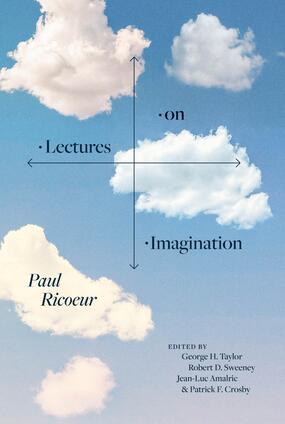
Type de publication et date de parution
OuvrageParu(e) le
Lectures on Imagination Paul Ricoeur
Direction d'ouvrage Edited by George H. Taylor, Robert D. Sweeney, Jean-Luc Amalric, and Patrick F. Crosby
Editions University of Chicago Press
Lien(s) externe(s) https://press.uchicago.edu/ucp/books/book/chicago/L/bo173083688.html
400 pages.
" The French scholar Daniel Frey has rightly written that we are never done reading Ricoeur. I believe that this is true in at least two senses for his newly published Lectures on Imagination. First, the text provides something new in Ricoeur’s corpus, an architecture for his theory of imagination that his other writings on the topic do not match. Ricoeur shows that the productive imagination has a power of discovery and invention that is capable of transfiguring our conception of reality and reorienting our action. Second, I would also argue that we are never done reading this text. Each reading reveals deeper layers of what is at work in Ricoeur’s formulation as he takes on, criticizes, and transforms existing theories of the imagination. He argues that existing theories of imagination derived from the model of the perceptual image are mistaken and that instead the productive imagination arises through linguistic depiction.
The book originated in a set of course lectures that Ricoeur delivered close to fifty years ago at the University of Chicago. During the same fall semester of 1975, he also delivered a second set of lectures, subsequently published as the Lectures on Ideology and Utopia, where the role of imagination in the social and cultural context is again a central underlying theme. Ricoeur demonstrates considerable mastery in showing the nature and implications of the productive imagination across diverse domains.
The publication of the Lectures on Imagination is also very Ricoeurian in the many forms of collaboration that led to its production. Thanks to the efforts of the Ricoeur family, the book is appearing simultaneously in an English version by the University of Chicago Press and in a French translation published by Éditions du Seuil. The text in turn is the result of a long-term editorial collaboration based on Ricoeur’s recordings and handwritten notes between Patrick Crosby, Bob Sweeney, Jean-Luc Amalric, and me. When we consider the importance of the question of imagination in Ricoeur’s work, the Lectures are a key piece in the understanding of his philosophy."
By George H. Taylor